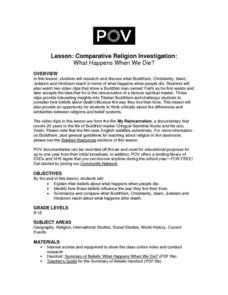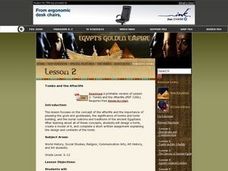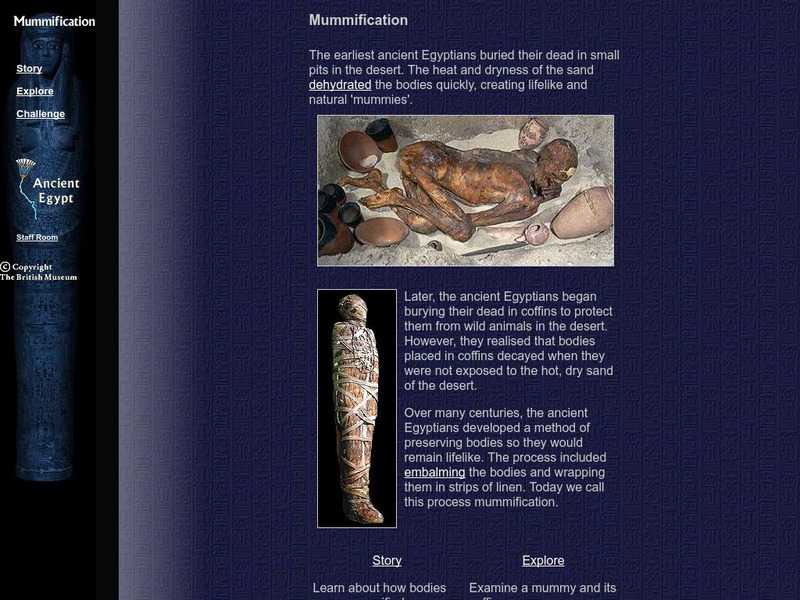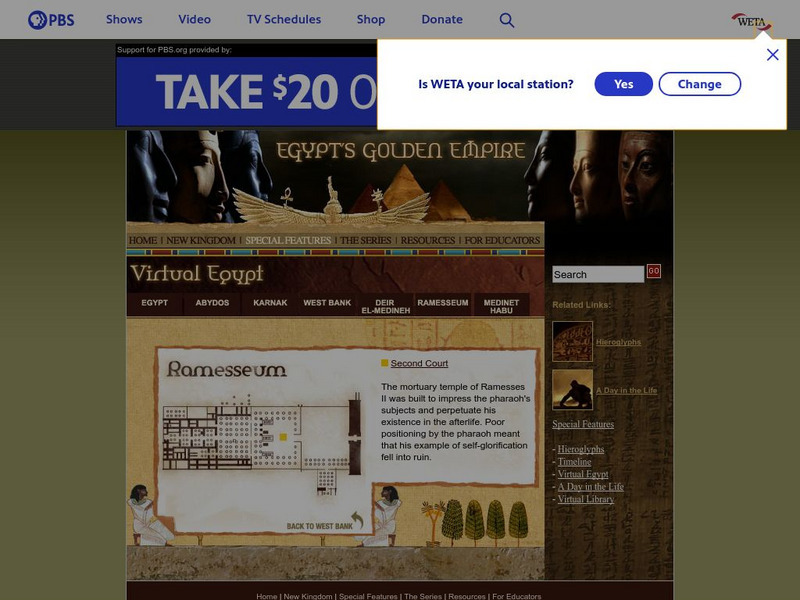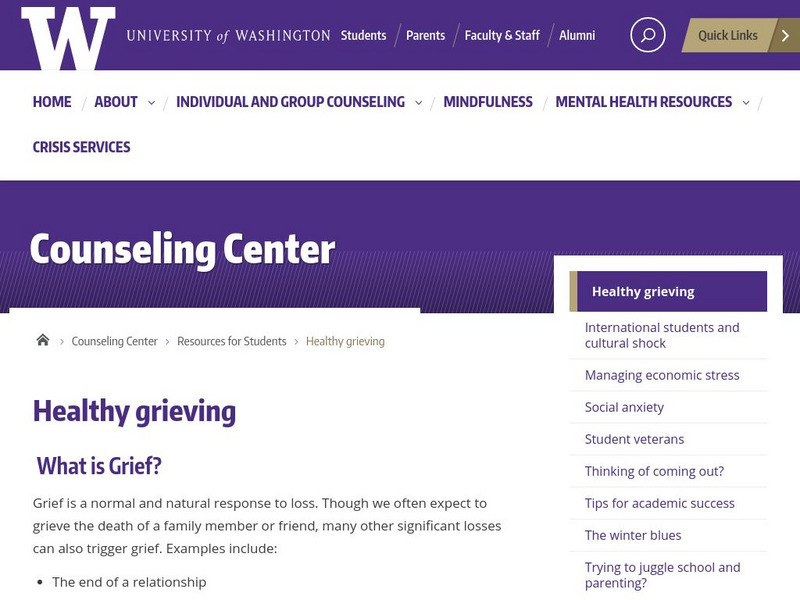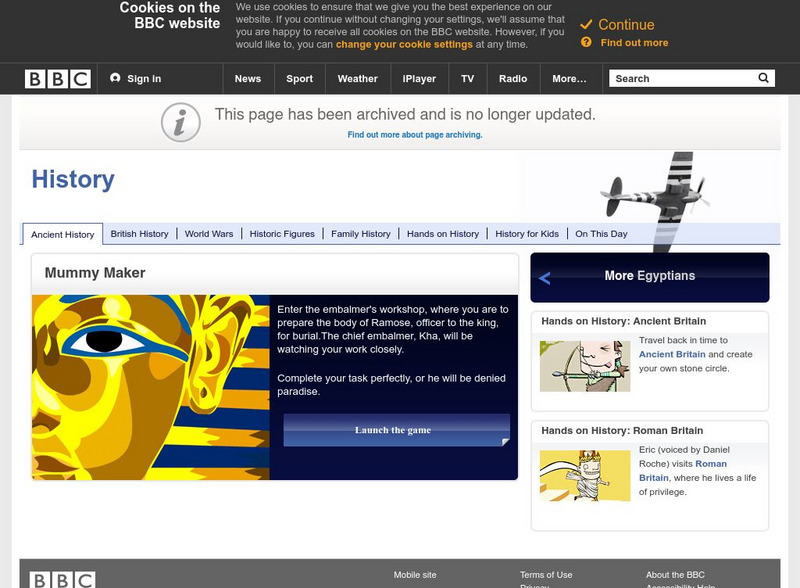American Documentary
Comparative Religion Investigation: What Happens When We Die?
How do different religions offer explanations for what happens when we die? Invite your learners to consider the variance and complexity of religious beliefs, and to research and compare/contrast the concept of death and afterlife...
Mountain View High School
The Big Religion Chart
This resource includes a list of over 40 world religions and their major features, such as brief summaries of their origins and history, beliefs in god and an afterlife, practices, foundational texts, etc. The document also includes an...
Curated OER
My Pyramid: Preparing for a Journey
Sixth graders imagine and record what a pyramid they might create would be like. In this pyramid instructional activity, 6th graders construct the contents of their pyramid which would include a hieroglyphic of their name, drawing of the...
Curated OER
Tombs and the Afterlife
Students design a tomb, create a model of it, and complete a short written assignment explaining the design and contents of the tomb. They study the concept of the afterlife and the importance of pleasing the gods and goddesses.
Curated OER
Death and Dying
Ninth graders examine religious rituals and ceremonies surrounding death and dying. In this cultural studies lesson, 9th graders explore end-of-life care in the United States and consider ways it might be improved.
Curated OER
D'Nile Is Where It's At!
Students travel down the Nile River to survey ancient Egypt in this unit of nine lessons. Data about pharaohs, hieroglyphics, growing crops, pyramids, the geography, and the sacred rituals are explored in this unit.
Curated OER
Prayers for Paankhenamun
Pupils use the internet to research one of six Egyptian gods and goddesses of the afterlife. They focus on physical attributes, symbols associated with and the role played by that deity into the afterlife. They write a letter to their...
Curated OER
Providing for the Afterlife
Students decide which personal items would be necessary for success and happiness in the afterlife.
Curated OER
Life After Death
Young scholars explore ancient Egyptian beliefs about death and the afterlife by observing and interpreting the design and illustration of a mummy case.
University College London
Univ. College London: Digital Egypt: Burial Customs of Predynastic Egypt
Pictures of items found in pre-dynastic burial sites. Click on a picture and you are taken to several more of the same type. Not much commentary, but lots of examples of burial items.
PBS
Pbs: Egypt's Golden Kingdom: Art and Architecture
The New Kingdom pharaohs moved from building pyramids to temples. Read about the temples, where they were, and the uses in this PBS article.
New York Times
New York Times: Gateway to Antiquity: Archaeological Renovation at Abydos, Egypt
The New York Times presents a slidshow with audio description featuring a description of Abydos in Egypt.
Smart History
Smarthistory: Dante's Divine Comedy in Late Medieval and Early Renaissance Art
Smarthistory article explores the relationship between Dante and the visual arts and how the Divine Comedy played an important role in the creation of a great many outstanding works of art.
University of Michigan
Univerisity of Michigan: A Taste of the Ancient World: Pharonic Egypt
Pictures of artifacts showing the importance of food and food offerings in Egyptian tombs. Provision for the afterlife was paramount.
The British Museum
British Museum: Mummification
Do you want to see a mummy? Examine a mummy and its coffin, or see how bodies were mummified. Then you can play the game "The Underworld".
University of Michigan
University of Michigan: Mummy Secrets Unwrapped!
Explains the process of mummification.
TED Talks
Ted: Ted Ed: The Egyptian Book of the Dead: A Guidebook for the Underworld
Ancient Egyptians believed that in order to become immortal after death, a spirit must first pass through the underworld. Tejal Gala describes an Egyptian "Book of the Dead" a customized magic scroll written by the living to promote a...
PBS
Pbs Teachers: Tombs & Afterlife (Lesson on the Beliefs of Ancient Egyptians)
A video-based lesson plan that involves students in investigating the concept of the afterlife, the significance of tombs, and the burial customs and traditions of the ancient Egyptians. Ends with an assignment to design and create a...
PBS
Pbs: Egypt's Golden Kingdom: Ramesseum
See the floor plan of the Ramesseum and, by clicking on the plan, you can go the the Second Court to see the colossus of Ramesses II. QuickTime required.
University of Washington
Uwscc: Healthy Grieving
Information on grief and answers to questions about grieving, death, and changing family dynamics.
Other
Near Death Experience Research Foundation
This professional site, the Near Death Experience Research Foundation, contains much information on near-death experiences. Includes forum, stories, books, and more.
BBC
Bbc: The Mummy Maker
An interactive game that allows the students to act as ancient Egyptian embalmers. Requires Flash plug-in.
Other
The International Association for Near Death Studies
Information on near death experiences and scientific explorations into the subject


